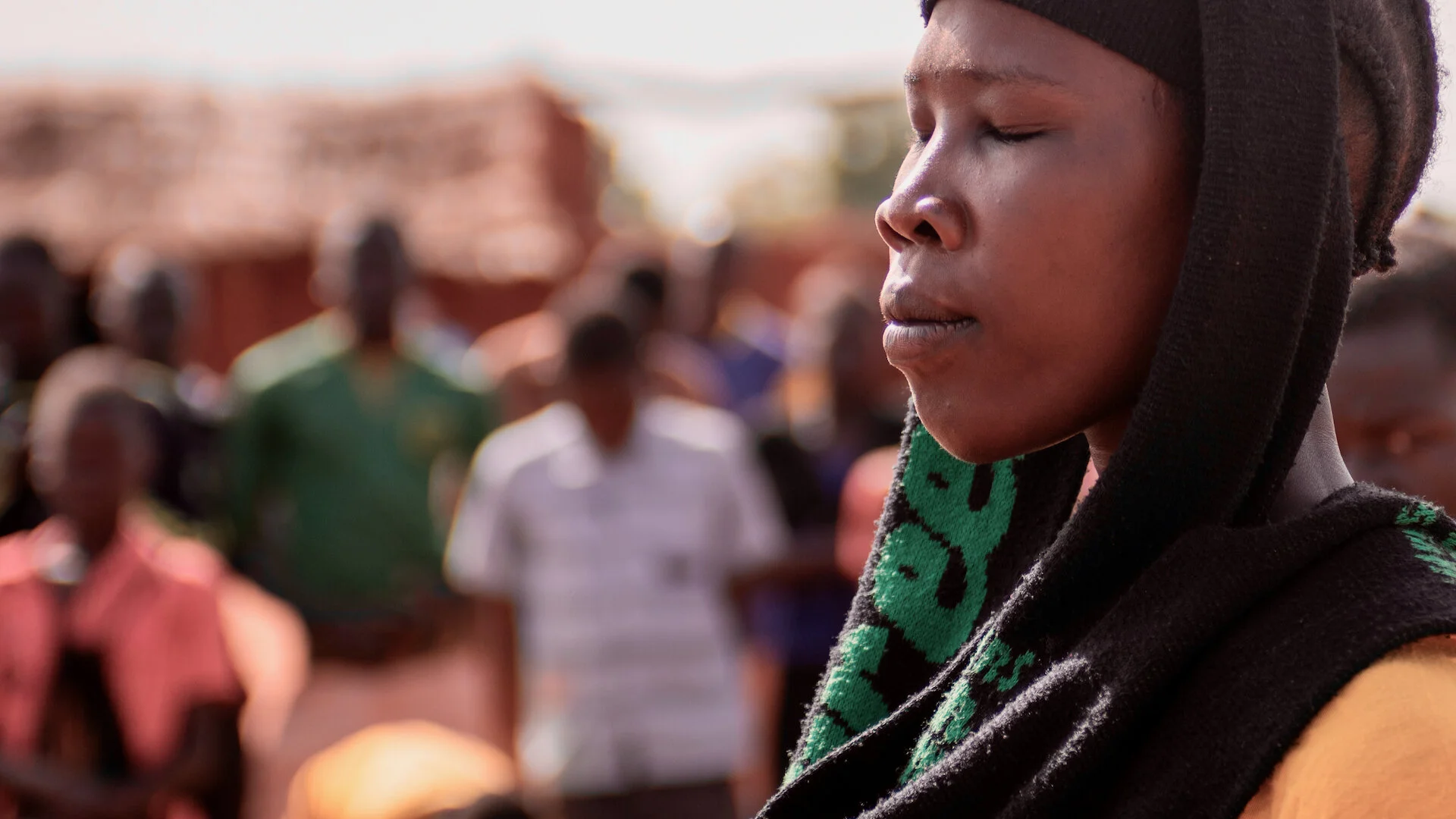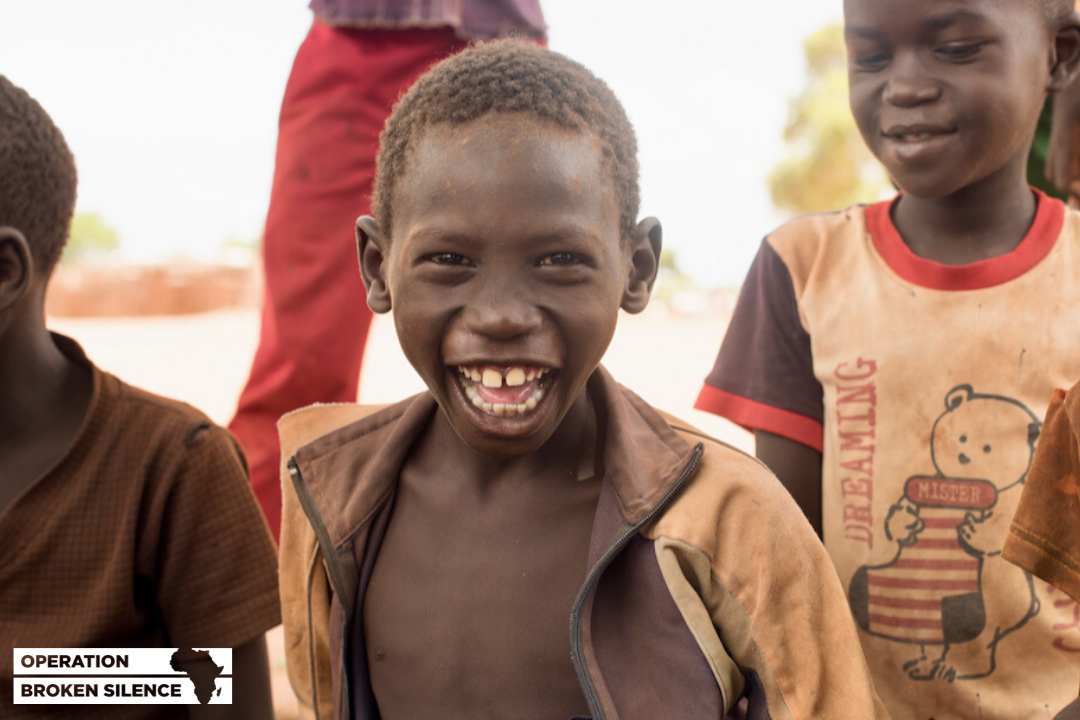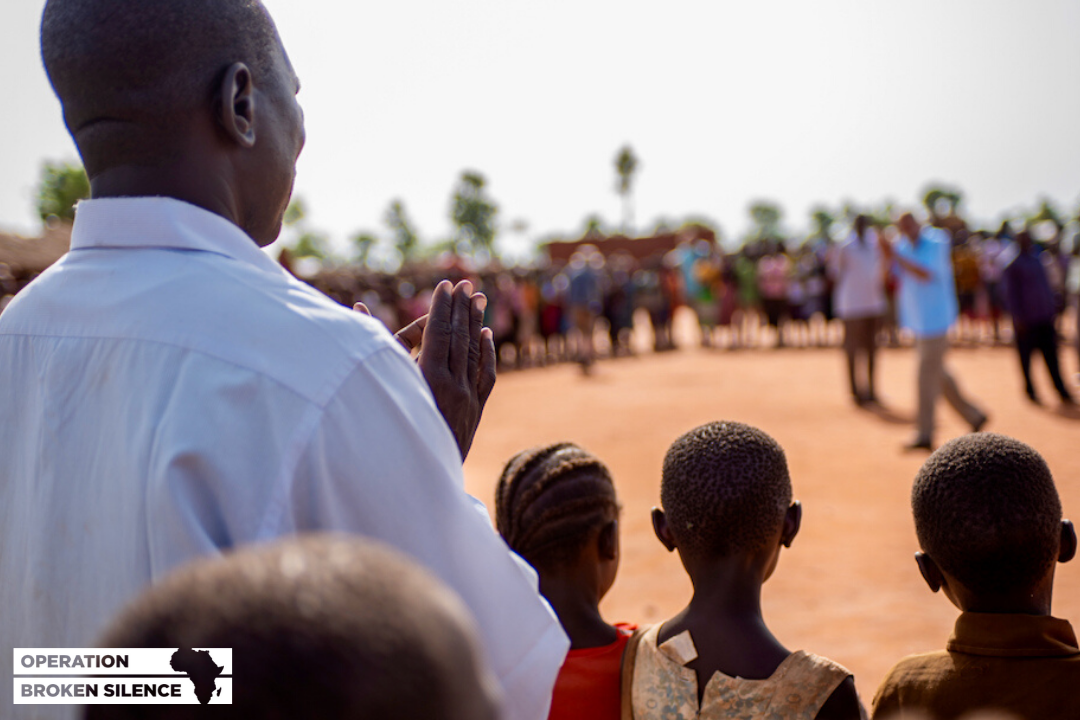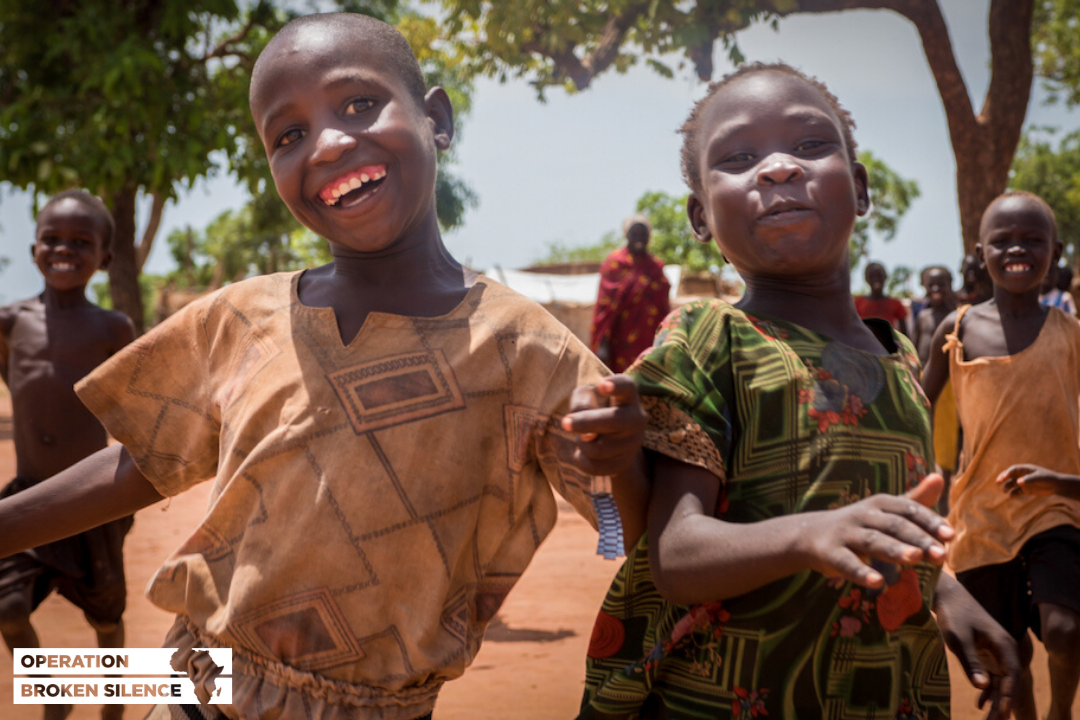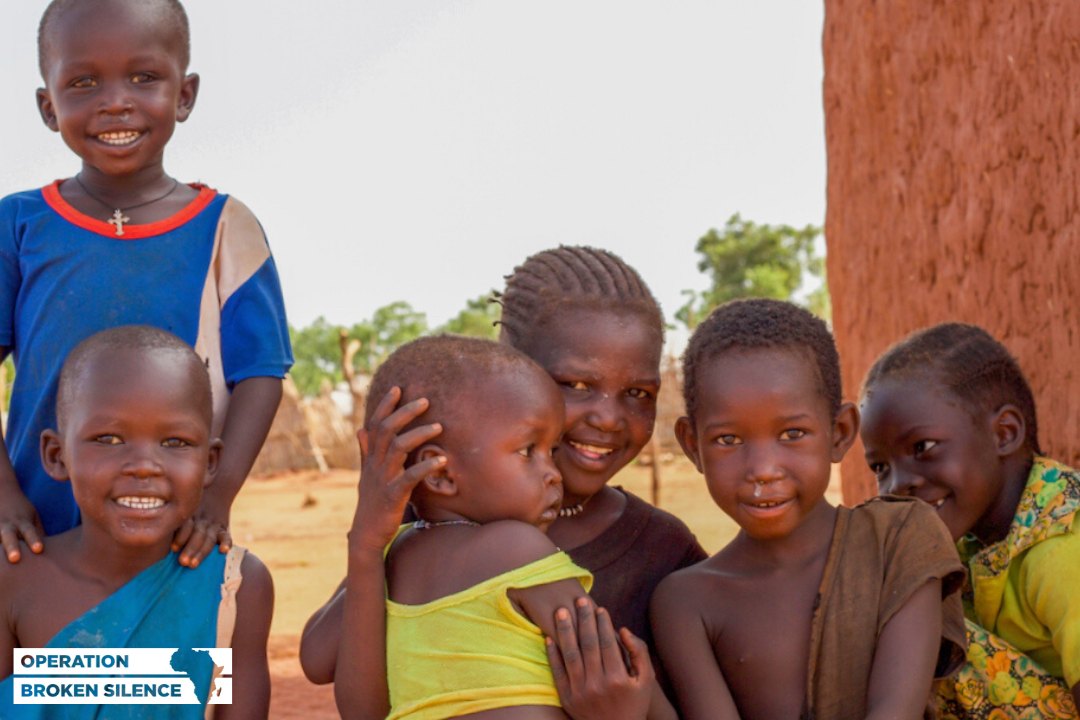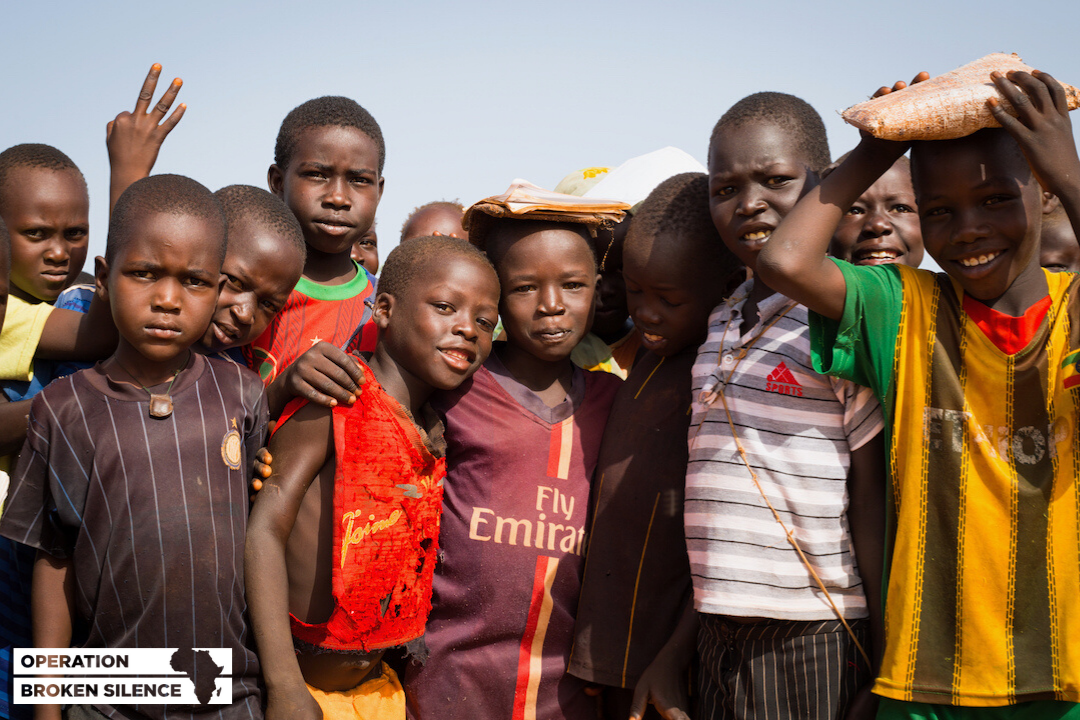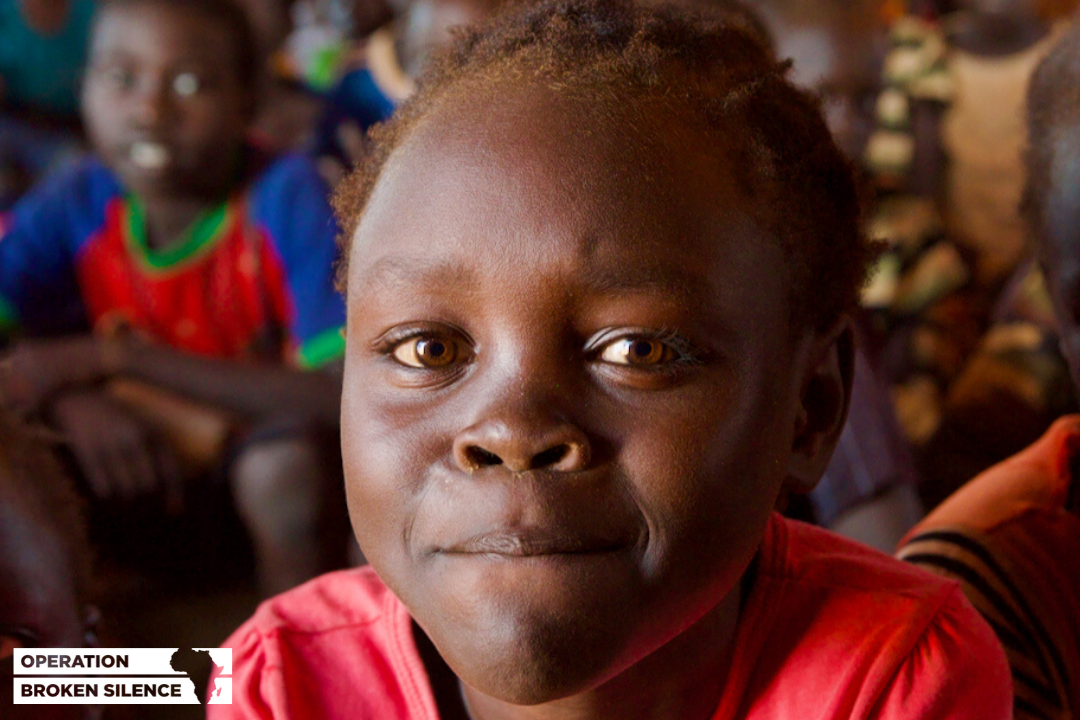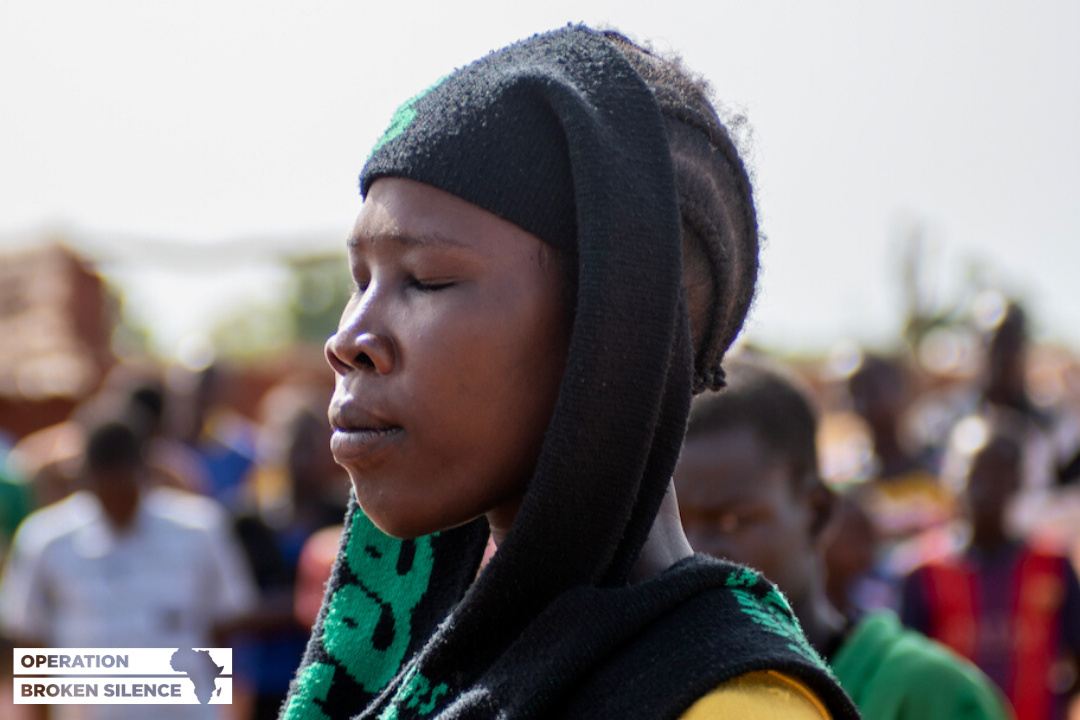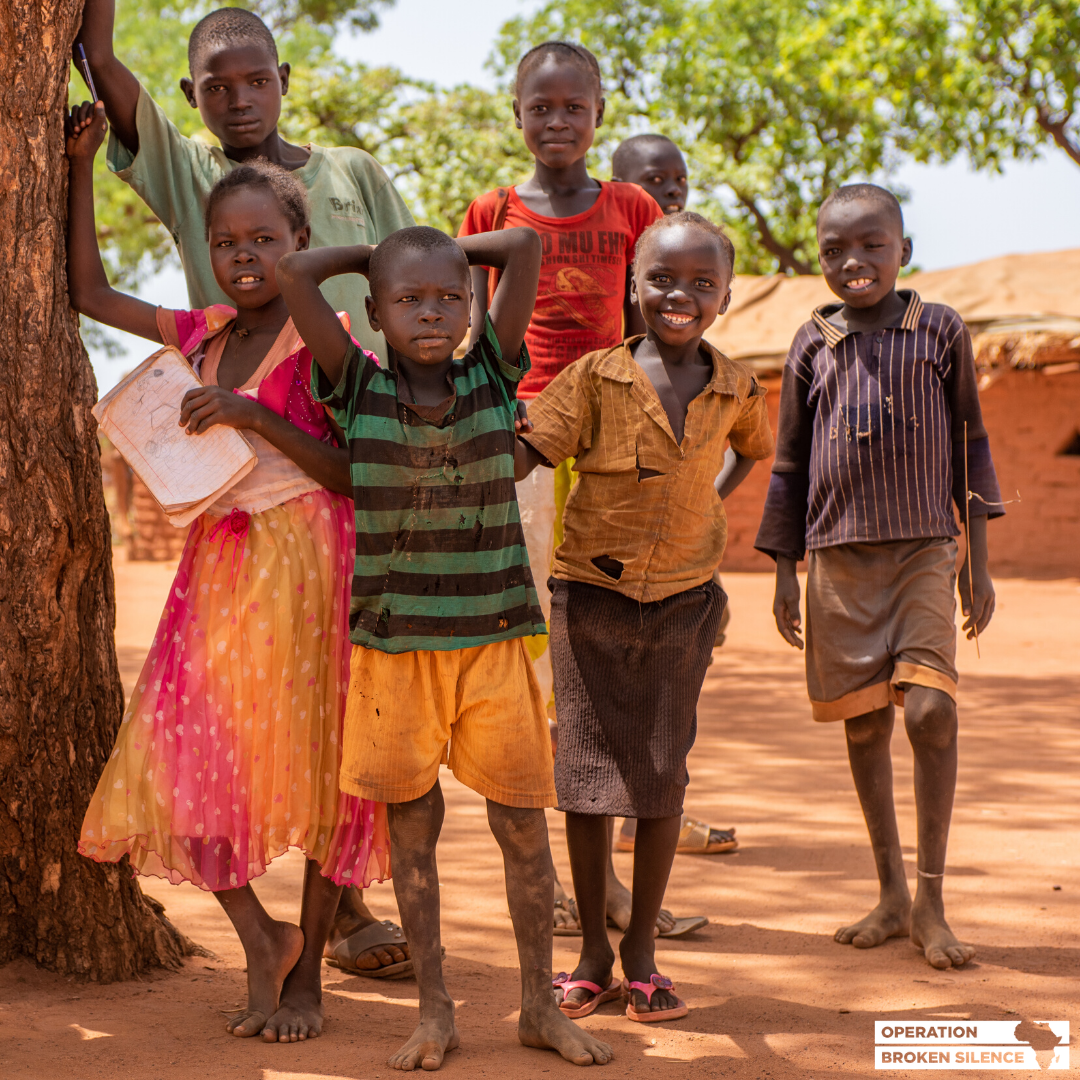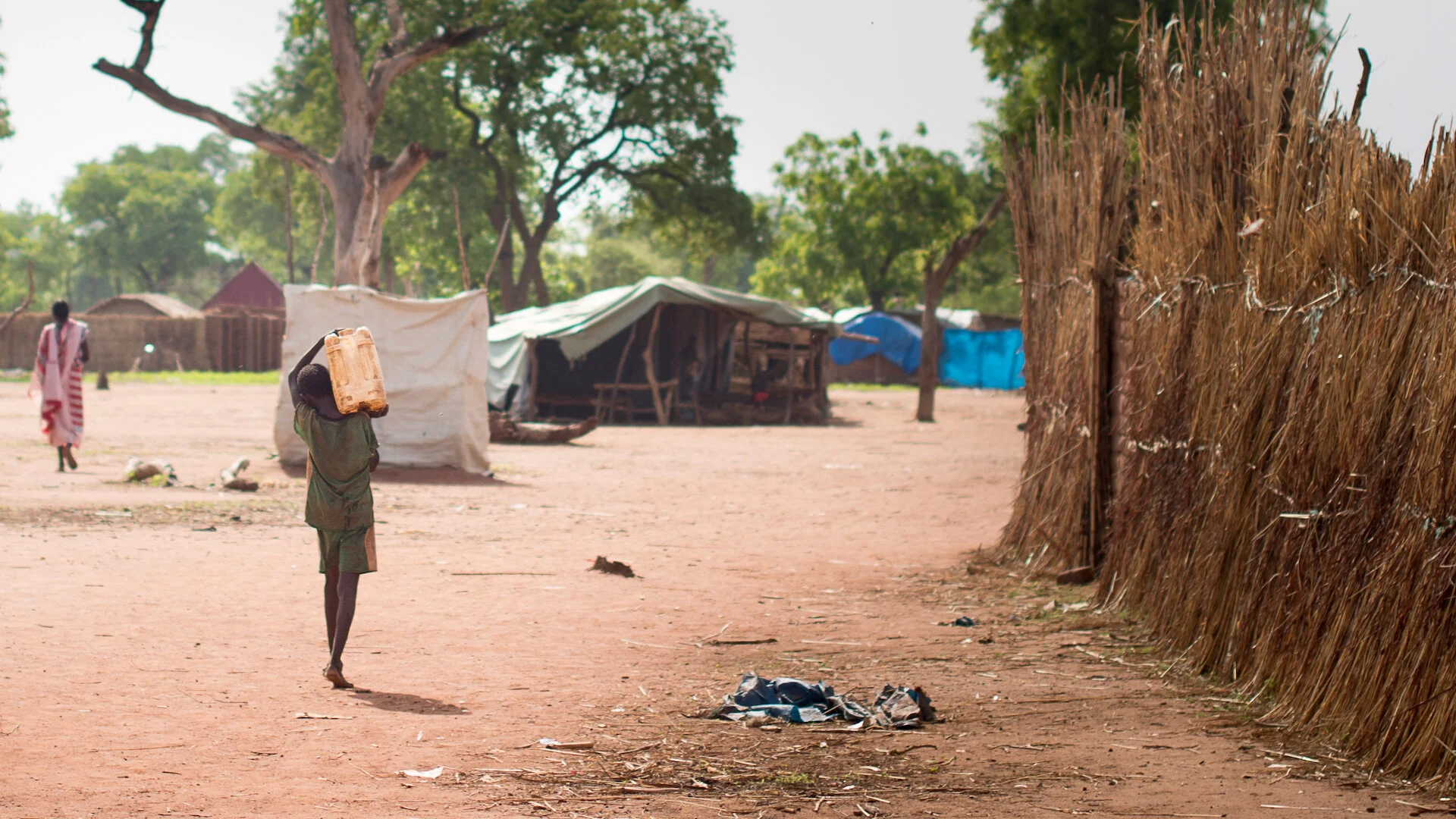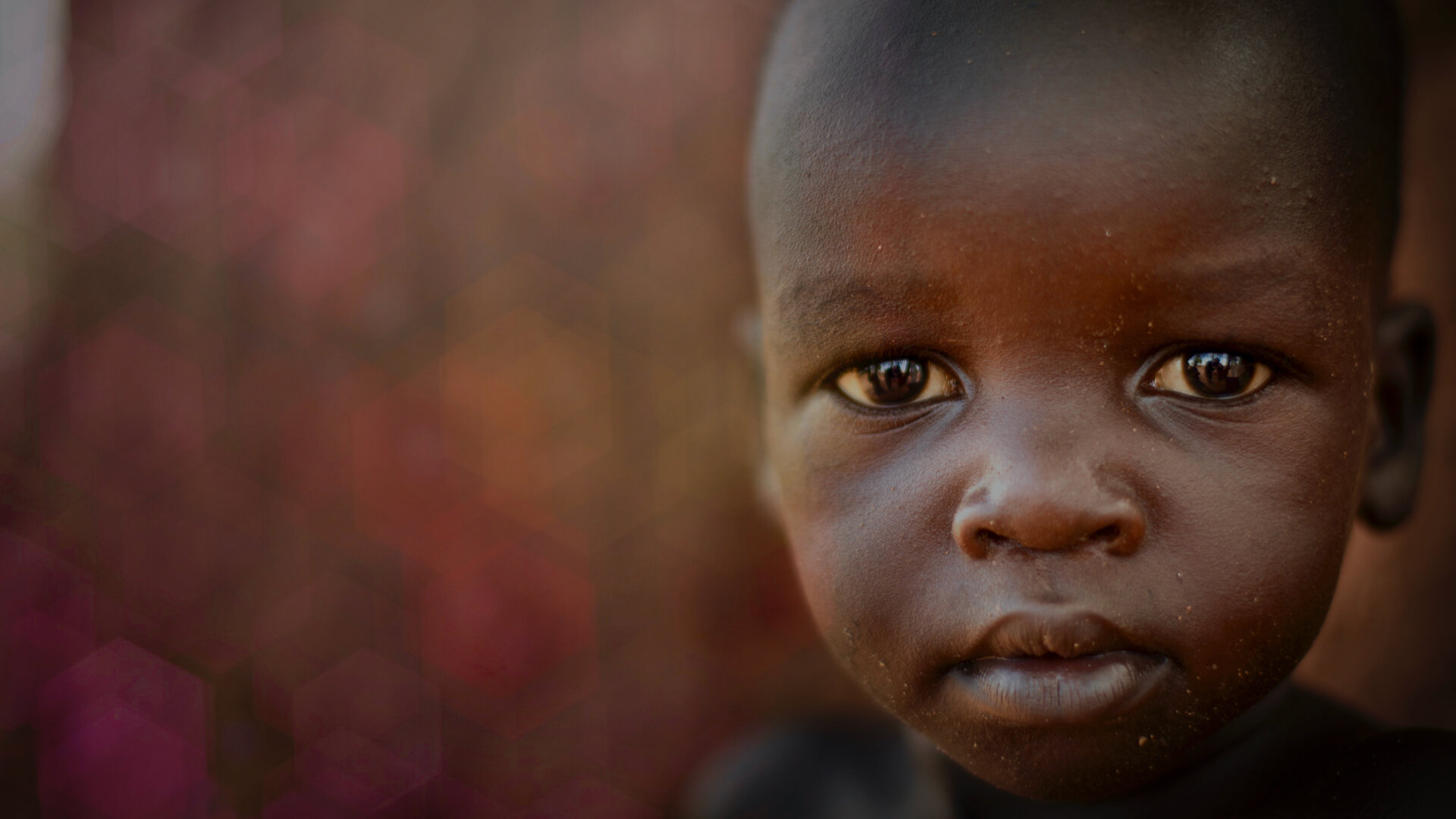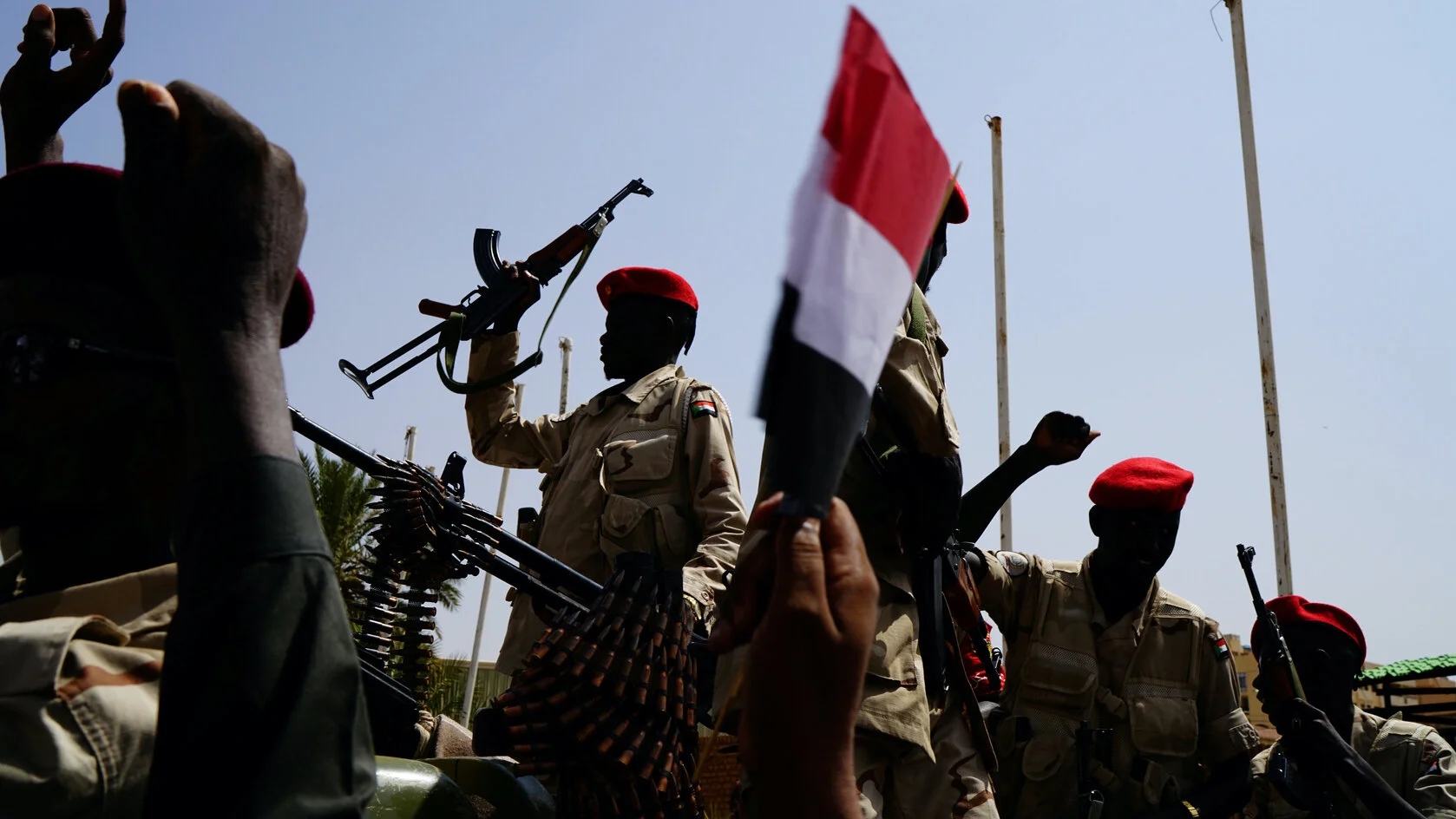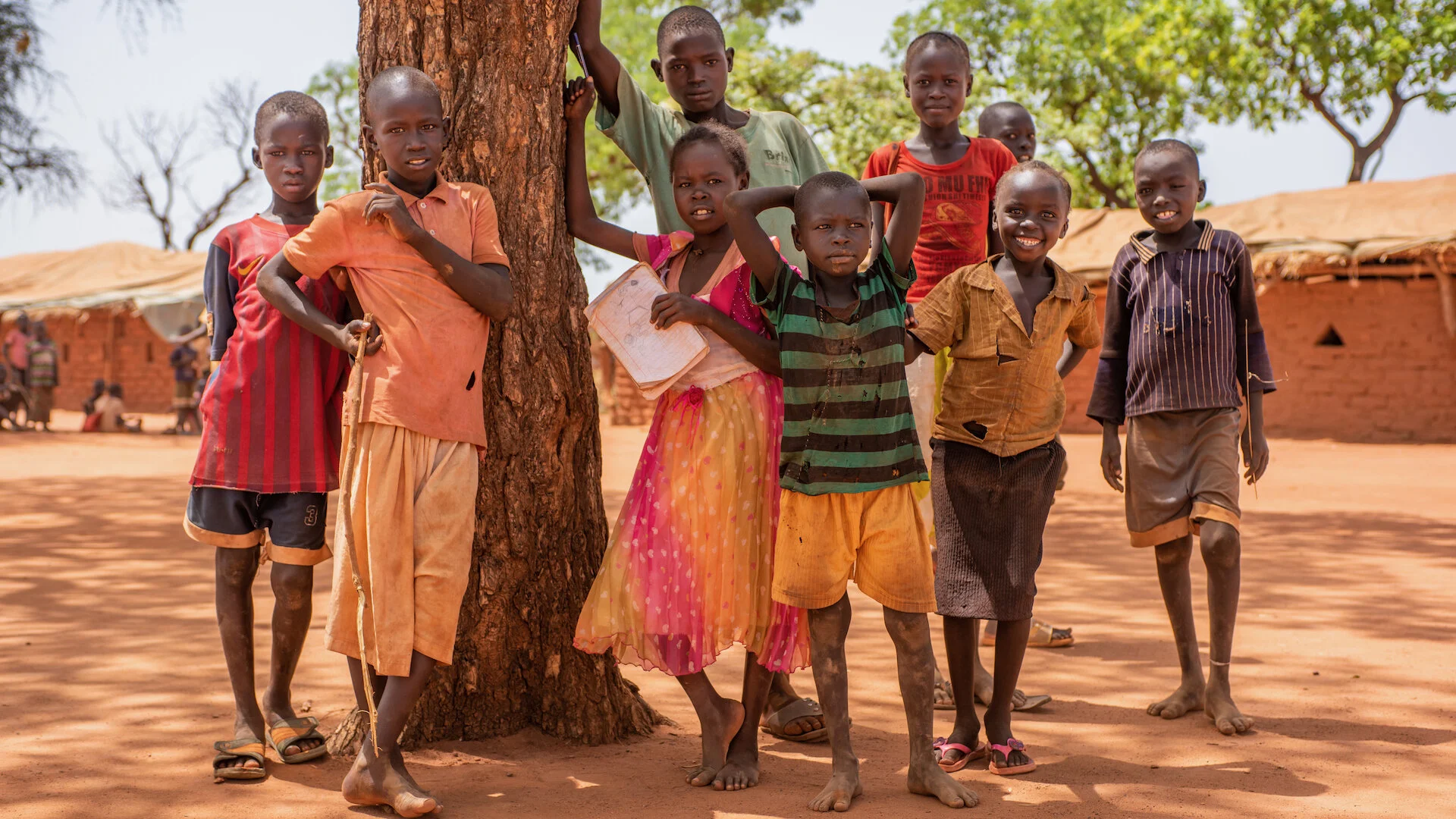News & Updates
Check out the latest from Sudan and our movement
June 2020 Yida Education Update
An update from the Nuba teachers you support in Yida Refugee Camp.
In 2015, Operation Broken Silence began funding 4 Nuba teachers in Yida Refugee Camp who were giving lessons underneath a tree. With your support, their small effort has blossomed into the Endure Primary and Renewal Secondary Schools. Today, you support 24 Nuba teachers who work in these schools. They run the show, not us, and they oversee 1,300 students every week.
Endure Primary has become one of the top performing schools in the region and a treasured possession of the Nuba community in Yida. More than 3,000 children have been served by the school to date. Renewal Secondary began a three-year phased opening in 2019 and has already shown great promise.
It has been incredible to watch these teachers use the funding you provide to create a more just situation for the children of Yida. One of the largest demographics here is children under the age of 14. The vision has always been to ensure that every single child in Yida has the opportunity to attain a quality education at no financial cost to them.
Today, this vision is in jeopardy. The joy we have seen for years in the faces of teachers and students at Endure Primary and Renewal Secondary is at risk. And it comes at a time when education needs across Yida are skyrocketing.
Right now, Primary 8 and Secondary 4 classes are in early preparations for their national exams. These are the final grades in both schools before graduation. Endure Primary has achieved a 90%+ graduation rate over the last few years due to high testing scores, and this will be the first round of national exams for Renewal Secondary. In the coming months, testing preparation will only intensify as the teachers take on a more direct role in coaching their students.
In mid-May, the pressure on these 24 teachers mounted even more. Yida is home to several other schools that are not officially connected to our Nuba education partner. These schools have historically been poorly funded and receive essentially zero outside support today. Because Endure Primary and Renewal Secondary make up the backbone of the education system in Yida, the Nuba government formally requested that our education partner help support Primary 8 and Secondary 4 students from these other schools as they prepare for exams as well. Today, an additional 500+ students from schools across Yida are receiving testing support from our teachers at Endure Primary and Renewal Secondary.
Testing is tentatively scheduled for primary students in November and secondary students in December. Students that fail these tests are required to start another year of studies before testing again. Those who pass get the great joy of moving forward in a ceremony that usually brings in thousands of refugees from across Yida.
This should be a time of focus, enthusiasm, and pride. We should be pouring more resources into the 24 teachers we support than ever before, because they are working harder than ever before to support more students than ever before.
Sadly, that is not happening.
Since March, 60% of the donations that these teachers rely on have been wiped out in the economic fallout of coronavirus pandemic. At a time when our teachers are being asked to do more for their community, they are receiving less support to get the job done. This means lower salaries, less school supplies, and a moratorium on building needed new classrooms. The momentum that has been building in the Endure Primary and Renewal Secondary these past few years is being blunted, and it is the world’s most vulnerable children who will pay the price for it.
Ismail* is one such student preparing for his national exam. He says:
“I am very nervous. If I pass, I will be the first person in my family to complete primary school. My father is still fighting in the war across the border in the mountains. The last time I saw him was 2 years ago. He told me he was fighting so that I could get the education he was not allowed to have. I hope I can make him proud by graduating.”
In March, Operation Broken Silence set out to recruit 200 new supporters who give at least $10 a month to meet these needs. We are now at 25% of our goal. This is progress, but it’s not nearly enough. Giving monthly is the best way to help. Please sign up right now. The futures of so many students just like Ismail depend on it.
If you are not in a position to give monthly, could you start a fundraising campaign or make a one-time donation? We cannot emphasize enough that every penny counts right.
*Name has been changed for safety reasons.
COVID-19 Update
There are no reported coronavirus cases in Yida Refugee Camp right now; however, the disease is spreading rapidly in Sudan and South Sudan.
While Yida is an isolated place, the likelihood of the pandemic reaching the area is growing. As the pandemic bears down on Yida, it is important that our teachers are not anxious about how they will support their families.
Sadly, the Nuba way of life has been in danger for decades. Sudan’s military and extremist regime officials have long viewed the Nuba people as a threat to their iron-fisted rule. The military and their extremist paramilitary allies have committed two genocides in the region since the 1990s.
Sudanese dictator Omar al-Bashir was overthrown in a military coup in April 2019. Sudan now has a fledgling transitional government that is supposed to be moving the country toward civilian, democratic rule. This new government has not lifted the humanitarian blockade on the Nuba Mountains, nor has a permanent peace been achieved. A fragile ceasefire is in place right now, but war clouds still loom over the Nuba Mountains.
Operation Broken Silence focuses on the Nuba Mountains and nearby Yida Refugee Camp. We are the only organization in the world providing assistance to refugee teachers here. Your generous support is essential for teachers to get the resources they need. Learn more about our mission here.
World Refugee Day: Sudan
Refugees from the Nuba Mountains region of Sudan, like Yusif, have been living in Yida Refugee Camp for more than 8 years now.
Today is World Refugee Day. The United Nations has announced that over 1.8 million Sudanese are displaced inside of Sudan, while another 734,900 Sudanese are refugees abroad. This means that over 8% of all Sudanese have been forced to leave their homes.
The updated statistics are part of a larger report by the UN Refugee Agency (UNHCR). Alarmingly, 79.5 million people were displaced worldwide at the end of 2019. Sudan remains in the top 10 countries with the highest levels of internal displacement. It is likely that Sudan’s displaced numbers are even slightly higher today, as recent rounds of violence orchestrated by regime paramilitaries has risen throughout 2020.
UNHCR also notes that being forcibly displaced from your home is simply no longer a short-term and temporary phenomenon.
Operation Broken Silence has seen this reality in our work. Some refugees from the Nuba Mountains region of Sudan have been living in Yida Refugee Camp for more than 8 years now. There are no signs that they will be able to return home anytime soon, despite recent changes in Sudan’s government. Yusif* knows this reality better than most.
“I came to Yida because there was a lot of bombing in the Nuba Mountains. The enemy (regime forces) was everywhere.
There is not much food here, but we’ve been able to adapt. At least here it is safe.”
I met Yusif when he was building a new house out of the traditional mud bricks that are common across Yida. It was his way of coming to terms with the reality that this was going to be his home for a long time, even if the ceasefire that is now in place came to be.
Despite Sudan’s peaceful revolution last year, not much has changed in the Nuba Mountains. A fragile ceasefire that began in the final years of the Bashir regime still has not translated into a peace agreement. Regime paramilitary forces and the Sudanese army remain deployed in the region. They routinely breach the ceasefire and launch attacks on one another. Thankfully the Sudanese military has not resumed aerial bombing of Nuba communities.
The current situation in Sudan has been made more complicated by the coronavirus pandemic, which is spreading faster there than most other places around the world.
It’s not hard to understand why Sudanese like Yusif can’t return home when conditions are this unstable. Helping them to continue make progress in Yida is the right thing to do.
Sudan’s next generation of leaders is at risk. Children living in the Nuba Mountains and nearby Yida Refugee Camp have grown up only knowing war. Most do not have access to a quality classroom.
Operation Broken Silence sponsors 24 Nuba teachers in Yida Refugee Camp. We’re the only organization in the world supporting refugee teachers here. Due to the devastating coronavirus pandemic, 60% of our donations have evaporated. We need your help sustaining these refugee teachers during this time of uncertainty.
* Name has been changed for safety reasons.
About Us
Operation Broken Silence is building a global movement to empower the Sudanese people through innovative programs as a 501(c)(3) nonprofit organization. We focus on empowering Sudanese change makers and their critical work. Learn more here.
Donations are tax-deductible within the guidelines of U.S. law. Give today.
About Mark
Mark Hackett is the Executive Director of Operation Broken Silence. He works with our Sudanese partners and oversees our daily operations.
Mark is one of only a few Americans to have been on the frontlines in the Nuba Mountains during the war.
Countdown To Soirée For Sudan
Here you can find the latest updates for Soirée For Sudan from September 10-12, 2020.
Hello supporters!
Here you can find the latest updates about Soirée For Sudan, our annual gala that benefits 24 Sudanese teachers and 1,300 students in Yida Refugee Camp. If you have not registered or made a donation yet, you can also knock that out right here, right now:
If you have questions, please reach out to us at concierge@operationbrokensilence.org
Gratefully,
Sara James, Ragaa Kunda, Faith Pool, Sarah Roberts, Emilie Rogers, Samantha Stack, and Ed Waugh
June 16, 2020
This is our first update since March, and it’s a BIG one!
Since we announced our decision to reschedule Soirée for Sudan, we’ve been monitoring updates about the pandemic and re-opening procedures. We always strive to put on a beautiful, dynamic gala that connects our supporters and raises funds for our education program in Yida, and to have an event that is accessible and welcoming to all.
Because large events are still not recommended by health department guidelines, and since we always want to have a gala that is welcoming to all our supporters, we’ve made the decision that Soirée for Sudan will be a virtual event this year.
This was a tough call, but under these circumstances, we know it’s the right one. We also believe that we can rise to the occasion and still deliver a wonderful event to you from the comfort of your own home!
Thank you for understanding and supporting our decision. Mark your calendars for September 10-12 and get read to join us for 3 days of virtual fun including….
Daily live streamed virtual events to keep you entertained and inspired at home, including virtual demos and performances. Attend them all or choose the ones you’re most interested in!
Opportunities to get involved and help further our mission.
3 days of virtual silent auction items
Live raffles for the wine stash of your safer-at-home dreams
Our best dressed contest (yes, there will be prizes!)
And more!
We’ll have more details and a schedule in the next several weeks. We’re also excited to share that we have a generous matching donor who is doubling the next $5,000 in donations that are made! Many of you have already donated in honor of this opportunity or are fundraising to get your family and friends involved.
We’re blown away by your generosity! Thank you for standing with us and helping to make the most out of this event. Without you, the Endure Primary and Renewal High Schools would have to close their doors to 1,300 students and 24 teachers. With no other robust schools in their community, they would lose a life-changing resource they value so much.
If you have any questions or want to fundraise (and earn an extra ticket to give to a friend!) email us at concierge@operationbrokensilence.org
March 16, 2020
Due to the spread of the coronavirus and recent recommendations from the CDC, we have decided to reschedule Soirée For Sudan for Saturday, August 29. Please watch this video from our Executive Director Mark Hackett to learn more:
We understand that some international crises transcend missions, borders, and societies. We are in one of those times right now. As a nonprofit that exists for the public good, we know that this decision is the right one, even though it negatively impacts our work in the short term.
If you can help our schools in Yida Refugee Camp get through this difficult moment, please consider taking one of these two actions:
March 2, 2020
Soirée For Sudan is all about improving education in Yida Refugee Camp. Teachers are the central part of that.
Being an educator is hard, wherever you are in the world. From the teachers in Yida to some of our top supporters here in Memphis, we know a lot of teachers and school administrators. Many of you work endless hours, are underpaid, and are under-resourced. Yet you show up in your classrooms everyday anyways. Because you know what you do is important.
If you work in the education field and want to attend Soirée For Sudan on March 28, we’re offering you 20% off your tickets! It’s our little way of saying thank you for everything you do.
Send us a quick email at concierge@operationbrokensilence.org letting us know the school you work at. We’ll send you a 20% off promo code :)
February 20, 2020
It's decoration time! All major planning for Soirée For Sudan is now complete, just the little details remain. We're stocking up on lights, streamers, balloons, and greenery. Our event storage room is probably going to explode soon with all the colorful stuff that brings the evening to life!
Two more dinner sponsors have arrived: Home Place Pastures and Sweet Cheeks BBQ! Home Place Pastures is committed to the ethical treatment of animals, the stewardship of their land, and the health of their community. Sweet Cheeks BBQ is an incredible competition team. We can't wait to see what they'll be bringing to Soirée For Sudan :)
And a big welcome to Elizabeth Looney Scott and Brooke Ballard! They will be helping us promote our big night online. Be sure to follow both of them on Instagram. They may or may not be giving away a pair of free tickets to Soirée For Sudan in the near future. Just sayin'.
Finally, another ticketing deadline is coming up! Both discounted Pre-Sale Admissions end on February 28, then the price goes up. Go ahead and register now before you miss the deadline!
February 7, 2020
It’s time to welcome this year’s title sponsor and mixologist! Bar 409 is returning to provide our themed cocktail! It will only be served at Soirée For Sudan, then never again. We can’t wait to see what they come up with!
We’re welcoming West Memorials back as a sponsor! This marks their 4th year supporting our education program in Yida Refugee Camp through this event. Be sure to check them out!
Our first two dinner sponsors are here as well! The Arcade Restaurant and Ciao Bella Italian Grill and Bar are joining us again. We can’t wait for their yummy food!
And finally, welcome to MEMPopS! The first 60 guests to arrive will get one of their rare boozy pops at the door. It’s worth showing up at 7PM on the dot for that! Yum.
January 15, 2020
Time to welcome two more sponsors! Meet Snapdragon Floral and Glo Medical Aesthetics & Hair Spa. Be sure to check them both out! Huge thanks for helping to make this year's event possible.
January 13, 2020
Welcome to 2020! Here's the latest news about March 28:
We have a new team member! Ragaa Kunda joins the Soirée For Sudan committee as our 9th member. She's super smart, crazy talented, and from Sudan. We're so glad you are part of our team Ragaa!
The core components of March 28 are planned out. Now it's all about the nitty gritty details and implementing our plans. Right now, we're locking down more event sponsors and exploring event decor. We have a lot of work ahead, but this is shaping up to be our best year yet.
Silent Disco is coming back due to popular demand! You'll be able to dance the night away in a more private area this year. We'll have some extra headsets and extra space for you as well!
We mentioned in November that there will be more ways to learn about Sudan and our work there. One way will be a virtual reality film screening! You'll be able to strap on a headset and get a sense of what life is like in one of Sudan's war zones for a few minutes. If you've never experienced VR before, this is a great chance to take it for a test run and learn about Sudan.
Finally, the first ticketing deadline has passed. The good news is that there are still two early registration levels left! Right now, you can register as an individual for $40 or as a couple for $70. Ticket prices will go up again when 40 of these tickets are purchased or at the end of January. Reading these updates also has perks. If you haven't registered yet, use promo code IREADSTUFFfor an extra 10% off :)
A big shoutout to the 49 of you who have already registered for Soirée For Sudan! Our supporters are registering 40% faster than last year. That means more support sooner for the 24 teachers and nearly 1,200 students at the Endure Primary and Renewal High Schools in Yida Refuge Camp!
December 1, 2019
Our first sponsors have arrived! Shoutout to Silent Events, Vera Bradley, Gold and Diamond International, Pettigrew Adventures, Pavo Salon, and Whitney Winkler Art for helping to make the evening possible.
November 4, 2019
There are a few big changes coming to the 2020 event! All of these come from feedback from our 2019 guests:
Cocktails are replacing beer tasters.
We introduced themed cocktails in 2019. Interest in beer tasting plummeted as a result. Fewer than half of all attendees even accepted a tasting glass at the door. Hence our evening's name change. We'll still have kegs for the beer lovers though!
New layout.
2019 was our first year in the Memphis Grand Carousel. We learned a lot, and you gave us great feedback on how we can improve the layout and flow of the entire space. Giving and fundraising booths will all be in the same area and two mobile bars are being added to cut down on wait times at the main bar. There will be slightly less table seating so everyone can move around more easily. We're also adding giant checkers to the list of games available!
More Sudan!
Throughout the evening, you'll have more opportunities than ever before to learn about Sudan and our mission there. We're exploring the possibility of doing a VR film instead of a traditional film screening and there will be more information throughout the space about why we do what we do.
October 7, 2019
As requested by guests from the 2019 event, we have improved ticket prices for 2020! There will be multiple and extended earlybird options leading up to general registration, ticket prices are roughly 50% less than last year, and a VIP section has been added:
Now - December 31, 2019
$28 Announcement Tickets
Free Entry via $100 Fundraising Page
January 1 - February 29, 2020
$40 Pre-Sale Registration
$70 Discounted Couples Pre-Sale Registration
Free Entry via $100 Fundraising Page
March 1 - March 21, 2020
$50 Earlybird Registration
$90 Discounted Couples Earlybird Registration
Free Entry via $100 Fundraising Page
March 22 - March 27, 2020
$65 General Registration
$120 Discounted Couples General Registration
March 28, 2020
If any tickets are available at the door, they will be $80 per person.
September 28, 2019
Big changes are underway for our biggest event of the year, including the evening's name. Say farewell to Good People Good Beer. Say hello to Soirée For Sudan! And the first 28 tickets are only $28!
About Us
The people of Sudan are overcoming two of the greatest challenges facing humanity today: war and genocide. Operation Broken Silence is accelerating their ability to generate lasting change through storytelling and movement-building, education and emergency relief, and grassroots advocacy programs.
We're a 501(c)(3) nonprofit organization. Your donation is tax-deductible within the guidelines of U.S. law. DONATE HERE »
Sign up for our email updates. Find us online at Facebook, Twitter, and Instagram.
Sudanese war criminal Ali Kushayb is now in custody
The International Criminal Court (ICC) announced today that a prominent Sudanese regime militia leader has surrendered to authorities in the Central African Republic. Ali Kushayb is now in the court’s custody.
The International Criminal Court (ICC) announced today that a prominent Sudanese regime militia leader has surrendered to authorities in the Central African Republic. Ali Muhammad Ali Abd–Al-Rahman, aka Ali Kushayb, is now in the court’s custody.
Prosecutors say Ali Kushayb was a key commander of the pro-regime Popular Defense Forces and Janjaweed militias that led attacks on Darfuri towns and villages between 2003-2004. The crisis in Darfur has seen hundreds of thousands of people killed and driven more than two million from their homes. From the ICC:
Mr. Kushayb is perceived to be the mediator between the leaders of the Janjaweed militia in Wadi Salih and the Government of Sudan. He is also alleged to have enlisted fighters, armed, funded and provided food and other supplies to the Janjaweed militia under his command, thereby intentionally contributing to the above-mentioned crimes. Ali Kushayb is alleged to have personally participated in some of the attacks against civilians namely in the towns of Kodoom, Bindist, Mukjar and Arawala between August 2003 and March 2004, where the killing of civilians, rape, torture and other cruel treatments occurred, therefore he allegedly committed, jointly with others, the above-mentioned crimes.
The warrant of arrest delivered on 27 April 2007 against Ali Kushayb lists 50 counts on the basis of his individual criminal responsibility including:
- Twenty-two counts of crimes against humanity (murder; deportation or forcible transfer of population; imprisonment or other severe deprivation of physical liberty in violation of fundamental rules of international law; torture ; persecution; rape; inhumane acts of inflicting serious bodily injury and suffering );
- Twenty-eight counts of war crimes (murder, violence to life and person; outrage upon personal dignity in particular humiliating and degrading treatment; intentionally directing an attack against a civilian population; pillaging; rape; destroying or seizing the property).
In February, Ali Kushayb and several of his bodyguards were spotted fleeing toward the remote border area of Sudan and Central African Republic. He was last seen in Um Dafuq, an isolated area that Sudanese regime forces smuggle weapons, people, and illicit goods through. There was a fear that Ali Kushayb was going to use his extensive local and regional contacts to disappear into the vast Sahel.
According to a CAR government official, Ali Kushayb was arrested in the northern town of Birao this morning and was put on a plane bound for The Hague. The ICC is now preparing to enter a pre-trial phase.
Sudan’s new transitional government has failed to turn over other Sudanese war criminals who have been indicted by the ICC to the court. The ICC has issued arrest warrants for overthrown dictator Omar al-Bashir, former minister Ahmed Haroun, and former defense minister Abdel Raheem Muhammad Hussein. All three are in custody of the transitional government.
In the background of everything you just read is Sudan’s next generation of leaders. Children living in the Nuba Mountains and nearby Yida Refugee Camp have grown up only knowing war. Most do not have access to a quality classroom. Their education will be what helps carry Sudan’s revolution forwards in the decades ahead.
Operation Broken Silence sponsors 24 Nuba teachers in Yida Refugee Camp. We’re the only organization in the world supporting teachers here. If you want to sustain these Sudanese changemakers during this time of uncertainty, I encourage you to join our campaign. If you can’t do that, help us spread the word.
About Us
Operation Broken Silence is building a global movement to empower the Sudanese people through innovative programs as a 501(c)(3) nonprofit organization. We focus on empowering Sudanese change makers and their critical work. Learn more here.
Donations are tax-deductible within the guidelines of U.S. law. Give today.
One Year After The Massacre, Has Anything Changed In Sudan?
Today marks a painful first anniversary for Sudan. Last year on June 3, the regime’s Rapid Support Forces and National Intelligence and Security Service launched a one-sided war against peaceful protesters in Khartoum. The resulting massacre shocked the world’s conscience and briefly put Sudan’s crisis in the global spotlight for the first time in years.
Today marks a painful first anniversary for Sudan. Last year on June 3, the regime’s Rapid Support Forces and National Intelligence and Security Service launched a one-sided war against peaceful protesters in Khartoum. The resulting massacre shocked the world’s conscience and briefly put Sudan’s crisis in the global spotlight for the first time in years.
The darkness that engulfed Sudan’s capital was not new to the country. For nearly 30 years, Sudanese dictator Omar al-Bashir’s government called Khartoum its untouched stronghold, a long-time garrison city from which the regime poured raw military power, political manipulation, and outright hatred into brutal policies and increasingly powerful paramilitaries who were unleashed on the country’s minorities and lower classes.
Countless massacres have been committed by regime forces across the country since the early 1990s. To many people outside of Sudan, Darfur is synonymous only with genocide, not the western region’s complex history that is both hard and beautiful to behold. Other lesser known parts of Sudan with equally rich histories, like the Nuba Mountains and Blue Nile, have been submitted to identical atrocities as those in Darfur.
So, the June 3 massacre was not unexpected, but it was still horrifying. After Bashir was removed from power in April, it was obvious that he left behind a fundamentally unchanged regime. Government forces continued committing war crimes in Sudan’s oppressed hinterlands, humanitarian aid was still denied to millions of Sudanese in need, and militiamen poured into Khartoum. The slaughter was even predicted months beforehand. Despite the glimmer of hope brought about by determined protesters, who displayed incredible courage, smarts, and restraint, the recipe for carnage was made in broad daylight.
Perhaps this is what made the Khartoum massacre feel particularly brutal. The regime had oppressed its citizens in the capital when needed, sometimes to a terrifying degree. But the true horrors of the scorched-earth warfare that has decimated Sudan’s periphery had never been felt in Khartoum.
The massacre was the cloak finally falling off the regime’s shoulders. Left standing was the worst kind of government: a hydra-headed monster of murderous security forces who worshipped their own power above all else, and saw ideology as a mere tool to advance their capturing of more power. Their purpose was never really about making Sudan an Islamic state. It was never really about Arabizing the country. Sure, many regime leaders cared deeply about these twisted visions, but the corrupt desire for power and wealth outweighed them in the end. The Khartoum massacre put the last of all Sudanese, regardless of their ethnicity, class, religion, or political leanings, in the crosshairs. It was the final declaration of war on the entire citizenry.
That and the massacre being live-streamed for the world to see, before the regime plunged the entire country into a communications blackout.
News of what transpired in Khartoum reached the outside world anyways. The sprawling protest encampment outside of the military’s headquarters was burned to the ground. Rapid Support Forces soldiers pelted fleeing protesters with grenades and gunned them down. Women were dragged off by regime paramilitaries, gang-raped for hours, and then cast onto the streets. Militiamen tossed the murdered into the Nile River like it was second nature. Paramilitaries murdered, tortured, and pillaged their way across the city.
When Sudan’s internet came back on a month later, images of the massacre flooded out. By that point, protesters had already surged back into the streets, only to be met with more violence. The only thing that had changed was their mood. Inspiration had been replaced with exasperation. Hope had been replaced with seething anger. Coupled with minimal international pressure, it was just enough to bring the regime slinking back to the negotiating table. After 30 long years, the hydra-headed monster finally blinked.
A transitional government was eventually formed: half regime leaders and half civilians. Sudan has been walking on a very fine tightrope ever since.
Has Anything Changed Since The Massacre?
Like all things in Sudan, today is incredibly complicated. Many Sudanese are mourning what was lost one year ago. Others are celebrating that some aspects of life have improved, while knowing that Sudan’s revolution is far from finished. Many feel both of these realities tugging at them. Some are protesting. Even more Sudanese feel like absolutely nothing has changed at all. Like the deck is still being stacked against them.
Uprooting this extremist regime was always going to be a monumental, decades-long undertaking. For years, many people inside and outside of Sudan aimed their ire at Bashir. He was the symbol of everything that had gone horribly wrong. The fall of an oppressive symbol certainly matters. It shows that change is possible. Deep down though, everyone has always known that the real work would begin post-Bashir.
Today, Sudan is barely into this new reality. Bashir himself is locked away in prison for corruption, but he has still not faced a courtroom for the far more serious war crimes and genocide charges against him. There is a good chance he never will. His powerful successors are seizing more and more control within the transitional government. The investigation into the massacre itself is still bogged down in bureaucratic obfuscation. Justice delayed really is justice denied.
Most concerning is the meteoric rise of the Rapid Support Forces commander Mohamed Hamdan Dagalo, aka Hemeti, in the transitional government. Conservative estimates put the size of his paramilitary force at 50,000 strong. Hemeti wields his own foreign policy that is separate from Sudan’s, and his troops are busy trying to show that they are Sudan’s real military power. But the Rapid Support Forces are not invincible. As their power grows, they are facing more attacks from other security agencies, including the still powerful army, and are being defied by protesters who know that the paramilitary group must disarm and demobilize. In most of Sudan, the Rapid Support Forces are viewed as a hostile occupying force, not a legitimate governing institution.
Their oppression remains as brutal as ever. Just two weeks ago, Rapid Support Forces soldiers executed Awad El Wakeel, a 33 year old Nuba man, merely because he self-identified as belonging to a Nuba tribe. Speaking to a Nuba friend as I was preparing to write this piece, he brought up Awad’s murder as being particularly painful. “Why?” I asked. “Because this wasn't just a murder,” he said. “I think, in America, you call it a lynching.”
Millions of Sudanese from Darfur to the Nuba Mountains watch and feel these paramilitaries breathing down their necks every single day. For them, nothing has changed. There is no peace. There is no relief. There is no justice. The shortcomings of the transitional government certainly are most egregious in Sudan’s still oppressed periphery.
This isn’t to say that Sudan’s revolution is a failure. The civilian-wing of the transitional government is addressing issues the Sudanese people face. Underneath the leadership of the empathetic Prime Minister, Abdalla Hamdok, a small string of victories has been building for months. Civilian leaders are busy confiscating billions of dollars of stolen wealth from fallen Islamic leaders, have outlawed female genital mutilation, and are pushing for basic freedoms for all Sudanese. Prime Minster Hamdok has even visited Sudan’s most oppressed regions to listen and help pry open humanitarian relief access to those most in need. A year ago, such a visit by a government leader was unthinkable. These are reasons to hope, but it would be generous to describe the activities of Sudan's transitional government as just the tip of the iceberg for what is really needed.
So, has anything changed in Sudan since the massacre one year ago? That depends on who you ask. It’s easy to point to changing laws and a more peaceful Khartoum and say yes, but only the Sudanese people are qualified to answer if they can feel these changes. Some Sudanese certainly have, and that’s a good thing. Many others across Sudan have not, which shows the revolution is far from over.
The Hardest Fights Lie Ahead
The successes and failures of Sudan’s revolution will be proven over time, but there will be key moments when we see how much really is changing. At some point, the very existence of the Rapid Support Forces is going to have to be addressed. The transitional government will have to make a decision concerning the secularism versus Islamic law approach to governance, and that will have implications that touch every corner of a society that appears ready to shake the yoke of the Islamists of. In the Nuba Mountains, where Sudan’s strongest armed opposition movement has bogged down tens of thousands of genocidal regime troops and secured a fragile ceasefire, the raging security forces and their begrudging Khartoum masters are going to have to make serious concessions for peace to work.
These moments and many more will be fraught with tremendous risk. They will show if the regime-wing of the transitional government and their attached business moguls are going to allow progress that severely weakens their own power, or if they are simply biding their time, waiting for an opportunity to drag the country back into full-blown military rule. History says the generals and security heads will resort to mass violence when they feel that the time is appropriate. Time will tell.
But far away from Khartoum is the most frustrating aspect of the slow pace of Sudan’s revolution: those most in need of change will probably be the last to see it, if they ever see change at all. Hundreds of thousands of Darfuris living in displacement camps for well over a decade still cannot go home, and there are signs that the Rapid Support Forces are making that reality permanent. Peace seems unlikely in the Nuba Mountains, where regime forces are escalating attacks on the Nuba people. Reparations to these communities seems even less likely, as the transitional government needs tens of billions of dollars just to move Sudan’s economy out of a death spiral and into a fragile state. It is in these parts of Sudan that the revolution feels non-existent.
As if this was not going to be challenging enough, the coronavirus pandemic is spreading rapidly through Sudan, slowing down the revolution even more. Sudan’s long-term prospects appear to be gloomier than they were just a few months ago.
The clouds may yet part. The younger generation of Sudanese grew up only knowing regime rule. They have tasted freedom. For many of them, there is no going back. They are willing to risk everything, including their lives, to move Sudan forward. And while the old guard regime and their attached business interests haven’t changed at all, even the generals and security heads seem to be aware that, at least in the short term, they should at least give the illusion of playing along to avoid another massive uprising.
And that leaves us: those who are looking into Sudan from the outside, both worried and hopeful, wondering how to help the changemakers. The Sudanese people have made it clear that they are taking control of their own destiny. That’s how it should be, but we have been asked to help in the Nuba Mountains, where the revolution remains unfelt.
In the background of everything you just read is Sudan’s next generation of leaders. Children living in the Nuba Mountains and nearby Yida Refugee Camp have grown up only knowing war. Most do not have access to a quality classroom. Their education will be what helps carry Sudan’s revolution forwards in the decades ahead.
Operation Broken Silence sponsors 24 Nuba teachers in Yida Refugee Camp. We’re the only organization in the world supporting teachers here. If you want to sustain these Sudanese changemakers during this time of uncertainty, I encourage you to join our campaign. If you can’t do that, help us spread the word.
About Us
Operation Broken Silence is building a global movement to empower the Sudanese people through innovative programs as a 501(c)(3) nonprofit organization. We focus on empowering Sudanese change makers and their critical work. Learn more here.
Donations are tax-deductible within the guidelines of U.S. law. Give today.
About Mark
Mark Hackett is the Executive Director of Operation Broken Silence. He works with our Sudanese partners and oversees our daily operations.
Mark is one of only a few Americans to have been on the frontlines in the Nuba Mountains during the war.
An Update From Our Executive Director
An update on the situation in Sudan and our mission in light of the coronavirus pandemic.
Hello supporters,
It’s been a few weeks since we provided an update on our work in light of the coronavirus pandemic. A lot has happened since then, but we’ve made modest headway. Now that our footing is more certain, I want to provide you new information and some insight into how we are moving forward.
Sudan & Our Mission
Most of you know that we have downsized to survive the pandemic’s economic fallout. Our mission remains steadfast, but we’ve instituted a 60% budget cut across the organization, reduced staff hours and pay, and departed our offices.
Meanwhile in Sudan, COVID-19 is spreading faster than the disease is in most other countries. The infection rate is doubling every 10 days. The actual number of cases is certainly much higher. 30 years of extremist regime rule has left Sudan with a decimated healthcare system and limited testing capacity.
Right now, there are no reported COVID-19 cases in the Nuba Mountains and nearby Yida Refugee Camp. This is one of Sudan’s liberated areas, where armed rebels have pushed genocidal regime forces out of large swaths of the region. There are no ICU beds or ventilators in the Nuba Mountains. The rebel government has sealed off access to the region and shuttered markets and main roads. A major coronavirus outbreak in Nuba, where decades of regime oppression has created poor humanitarian conditions, would be catastrophic. Prevention is the only option.
It’s been a hard few weeks for sure. But there are rays of hope.
Since mid-March, Operation Broken Silence has not had a strategic plan, something we traditionally rely on. This was a purposeful decision. As the global pandemic unfolded, we needed the freedom to move quickly and make immediate progress against the chaos.
Our leadership’s focus has been growing the core of our movement: The Renewal. I can now report to you that this decision is leading to positive results. The size of our monthly giving family is growing at its fastest rate in our history. We still have a long road ahead, but we are trending in the right direction.
What Comes Next
Operation Broken Silence will not have a strategic plan for the remainder of 2020. The scientific consensus seems to be that the world will experience rolling outbreaks and shutdowns until there is a widely-distributed vaccine. We will be hit with more financial shocks and programming challenges in the months ahead. Our annual series of high-impact summer Brand Partnership events will most likely not be taking place. Embracing these hard realities is how we will come out stronger on the other side.
Last night our Board of Directors approved what we’re calling our Rebuilding Guide. I want to emphasize that this is a guide, not a plan. It sets benchmarks for when we can make decisions on accelerating funds to programs, return staffing to pre-pandemic levels, and rebuild our emergency cash reserves. Even when these benchmarks are met, we may decide to temporarily hold back on moving to the next phase if macro-economic, security, or health conditions appear unusually unstable in this already unstable time.
In the coming months we will see waves of generous donations that are followed by periods of giving famine. We’ve already been through two of these cycles. This is why our leadership’s focus will remain on growing The Renewal family.
Our goal remains 200 new Renewal members on the Do Justice campaign. Reaching this goal is at the core of our Rebuilding Guide. More monthly giving will cushion incoming financial shocks on our Sudanese partners. This may be the hard thing to do, but it’s the right thing to do. If you aren’t in a position to give monthly, you can help by spreading the word online.
Operation Broken Silence will be around for the long haul. For our staff, working here is our dream job. The world has become a more difficult place, but we believe in the strong connection between all of the teachers in Yida, ourselves, and you: our wonderful movement. We can't express enough how much we appreciate your support.
Onwards,
Mark C. Hackett
Executive Director
Operation Broken Silence

